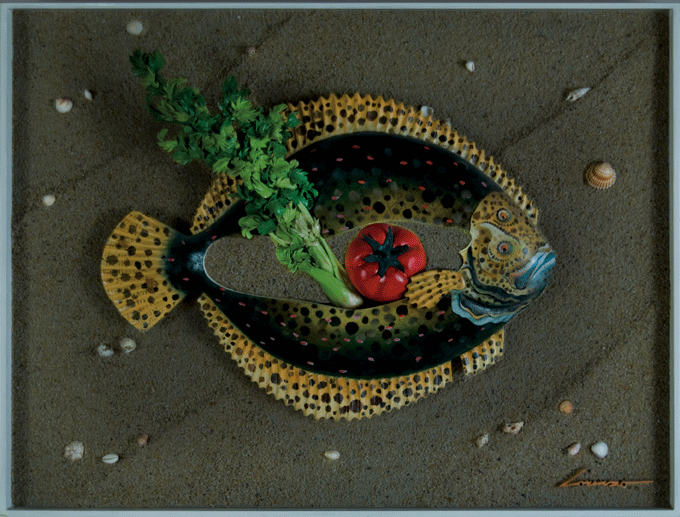SoleLess Plaice
with reference to “Cellular Automata”

1985-2000
mixed technique 65x80x14 cm (LED internally lit)
Dedicated to Stephen Wolfram
A plaice, in the centre of which rests the ‘absence’ of the sole of a foot; a stalk of celery and a tomato are placed in this recess.
Stephen Wolfram, the distinguished scientist, inventor and the author of ‘A New Kind of Science’ is regarded by some as ‘the next Newton’. He challenged the foundations of all modern sciences with his work on ‘Cellular Automata’ (another Generative Science in the same fascinating league as Benoit Mandelbrot's ‘Fractals’), by providing, discrete rules which define the outcome of seemingly random phenomena. He believed that natural selection is not all that important. If he’s right, ‘Complexity is destiny- and Darwin becomes a footnote’. Cellular automata are simple mathematical idealizations of natural systems. They may thus be viewed as parallel-processing computers of simple construction.
Wolfram, who believes the universe is a complex computational system, argues that ‘there's no place for God’ in his theory. Does this mean the world is a soulless place? Perhaps it doesn’t mean that, but rather that science - as opposed to philosophy or theology - has no place for Him. Even if we found that cellular automata do describe every aspect of our physical existence, we would still need to ask how and why these rules came into being to understand life's origins and its eventual purpose … if there is one.


